The Girl Next Door: Micaela Robinson
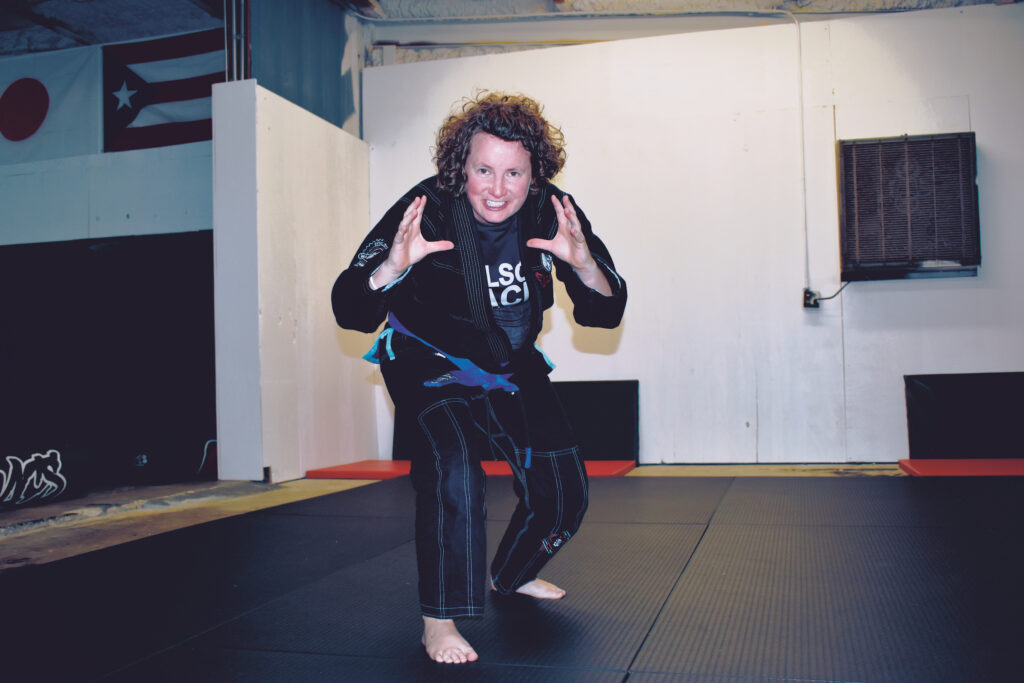
Story and Photos By Evelyn Sutton
Anyone who has met or trained with Micaela Robinson agrees she’s an all-American sweetheart. Her friendly demeanor and warm smile match her personality, which is sweet as apple pie. But don’t let her charming allure make you underestimate her. An example of strength and sheer determination, every day she’s training, she’s pushing herself physically and mentally, overcoming a chronic pain issue, result of an injury from high school. This modest beauty can turn it up on the mat and leave you — literally — breathless.
JM: Tell us about yourself. How old are you? How long have you been training?
MR: I am a 41 year old mother of 3 and I work for them full time! My family and I moved to Melbourne, Florida 4 years ago from Utah, where I enjoyed mountain biking and rock climbing. I had never even heard of BJJ until about a year and a half ago when I was on the computer trying to find a boxing/kickboxing gym. It did not take me long to find the 5 Rounds gym (now called Carlson Gracie Jiu-Jitsu Team Melbourne). I initially just wanted to learn how not to punch like a girl and get a good work out.
JM: Have you trained martial arts before and what attracted you to BJJ?
MR: I had never trained in any martial arts outside of karate, but I remember loving it. I was not interested in BJJ at first. When I first joined the gym I was taking the kickboxing and boxing classes. David Sutton, the owner and headcoach, told me I should try a BJJ class. He said that kickboxing was great but that I would most likely never be able to outmuscle a larger, stronger attacker. He told me that BJJ was meant for a smaller and weaker person to dominate a larger stronger opponent. So, I tried a class and never went back to kickboxing.
JM: How was your first BJJ class?
MR: Awkward. I have a very large personal space bubble, so to be that close to other sweaty people was very hard (not to mention most of the positions seem intimate to the untrained eye). It didn’t take long for my personal space bubble to disappear. It does come back outside of training BJJ, though. With all of that said, I loved it! I stopped going to kickboxing so I could focus all of my attention on BJJ.
JM: What impact Jiu-Jitsu has in your life, as a woman, and individual?
MR: Lots of ways. It keeps my mental health in check. It’s my happy place. It keeps me mentally engaged, working my mind. It keeps my eating habits healthy. It is very hard to perform well when I don’t eat well. It gives me confidence to know that if I were in a bad situation, I’d have the tools to get me out of it.
JM: You were always athletic and you played sports in High School. Tell us about that.
MR: I was very athletic growing up. I was very good at any sport that involved a ball, but my favorite was soccer. I played competitively most of my childhood and teenage years and then played for my highschool team. I was injured my sophomore year of high school which turned into a chronic pain issue (CRPS – Complex Regional Pain Syndrome). This syndrome affects my lower right leg (knee down). The pain is so intense that I have had a spinal stimulator placed on my spine to help control some of the pain. This, coupled with the demands of children at home, had kept me from continuing to be as athletic as I had been. BJJ helps keep my leg active without impact, like most other sports, and it helps with the pain, which allows me to train 4-5 days a week. Overall, I don’t feel like being athletic is in any way a prerequisite to start BJJ.
JM: Your whole family trains. What are some of the benefits of sharing this practice with your kids and your husband? What does it look like to be a BJJ family?
MR: My whole family does train now and it’s wonderful to share something that I love so much with my family. My three children started right before the quarantine, and my husband started last month. It is wonderful to know that my children are learning how to defend themselves and others. I love seeing the kids gain confidence. I love knowing they’re learning a valuable skill that will help them throughout their lives.
I like the confidence it gives me and my kids when we are able to work ourselves out of a difficult and tight situation. It’s also great to be able to roll together for fun at home and on the mats.
Jiu-Jitsu keeps my mental health in check. It’s my happy place. It keeps me mentally engaged, working my mind. It keeps my eating habits healthy. It is very hard to perform well when I don’t eat well. It gives me confidence to know that if I were in a bad situation, I’d have the tools to get me out of it.
JM: What’s your favorite position and favorite submission?
MR: My favorite position is to have someone’s back. I feel most comfortable in this position, however, I don’t always get a submission. My favorite submission is Kimura from closed guard and gogoplata from mount.
JM: What things do you find hard in training?
MR: The thing that I find the hardest in training is not comparing myself to others. I have really struggled with this especially since receiving my blue belt. I see others who just pick up on the moves a lot faster than I do and that I rarely tap others when I roll. Thankfully, I have a very good coach who has incredible patience with me.
JM: And what do you find easy, what comes natural to you?
MR: Questions come naturally. My coach definitely let me know, haha! I’m not allowed to ask any questions past the demonstration anymore. Actually, since that point my Jiu-Jitsu has improved quite a bit. My coach does a very good job instructing the individual and he knew that I know the technique, I just need to trust myself.
JM: Not too long ago, you earned your very first significant rank in Jiu-Jitsu. What did it feel like to earn your blue belt?
MR: Honestly, it felt amazing! Such an accomplishment, even though I almost died from (heat) exhaustion at the local produce stand on my way home after rolling for my belt! Don’t worry, they stuck me in their cold storage until I recovered. I was so proud of myself because I stuck with it! I love Jiu jitsu but it is not easy for me. I don’t learn it as fast as some of the other students, so this was a big deal for me.
JM: Do you feel that becoming a blue belt has changed the perception or expectations of others when you’re on the mat?
MR: Yes, absolutely. I have really struggled with this since earning my blue belt. I feel like people look at me like I’m a blue belt and I should be able to tap all white belts now and that I should pick up on technique quickly. I know this is just my perception, but it still puts pressure on me. Despite this, I still show up every day for training. I’ve been learning slowly what belts actually mean, though. Just because I’m in a handful of other blue belts, it’s my journey, not theirs. It’s not how fast they progress compared to me, it’s how I’m progressing compared to myself yesterday. This is still hard for me to accept, but I work on it every day.
JM: What does it feel like to be a woman in what is still a male dominated sport?
MR: It really doesn’t bother me. At first I felt more secure when I had a female training partner to lean on. But now I’m very comfortable and consider most of the men as my friends. But that could also be because our gym is the best. I do wish more women trained because BJJ is such an amazing life skill.
JM: How important is having a “female squad” you can lean on for encouragement and support at your home gym?
MR: Pretty important. I’ve come to realize there are some things only females can offer other females: certain points of view, certain types of encouragement, and sharing BJJ insecurities are some examples of that.
JM: What do you consider the greatest challenges for women in Jiu-Jitsu?
MR: Barrier to entry. Most women are intimidated by the testosterone levels at most gyms. I was intimidated
by this as well, which is why I was drawn to kickboxing at first because I felt there would be more women in the classes. However, the men I train with are very easy to work with, incredibly kind, and respectful of the women in our gym.
JM: What do you consider the greatest accomplishments of women in Jiu-Jitsu?
MR: There is something to be said about jumping into a sport dominated by men. I think this is something all women can be proud of.
JM: Do you have any role models in the sport?
MR: I consider most people I train with at my gym to be role models. There are a couple of people specifically that I look up to. Outside of being good demonstrators of technique, they inspire several other qualities that I have come to realize are an important part of training in jiu jitsu: kindness, instilling confidence in others, non-judgemental with my insecurities, and always willing to listen. I try to emulate these qualities as well as learn technically from them.
JM: What are your future plans for Jiu-Jitsu?
MR: I plan to just keep training, keep progressing, and getting better. I want to be the best I can be. I don’t have any intention of competing. I do this mostly for satisfaction and to build confidence.
JM: What is your best advice for women in BJJ and those looking to start?
MR: I would tell them to just start. You will fall in love with it. I wish that I would have found BJJ when I was a lot younger. It is very addicting. The awkwardness lasted one class for me, so don’t let it stop you. Also, start rolling as soon as your coach will let you. Do not shy away from it. Identify your weaknesses and give them the most attention instead of trying to avoid them.
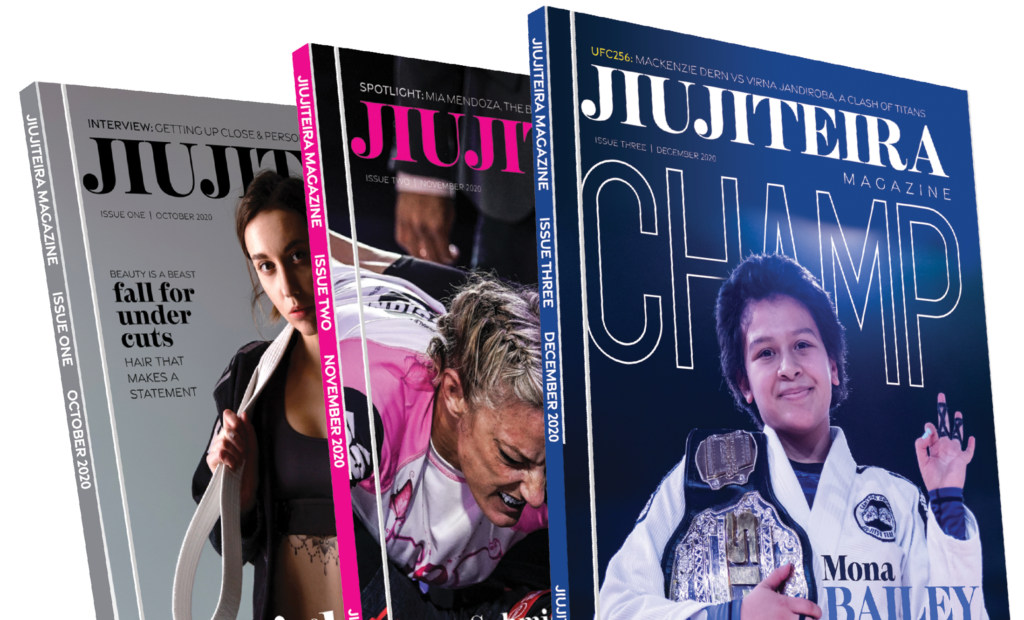
Our printed magazine is full of extraordinary women with extraordinary stories, get your printed copy via mail today >


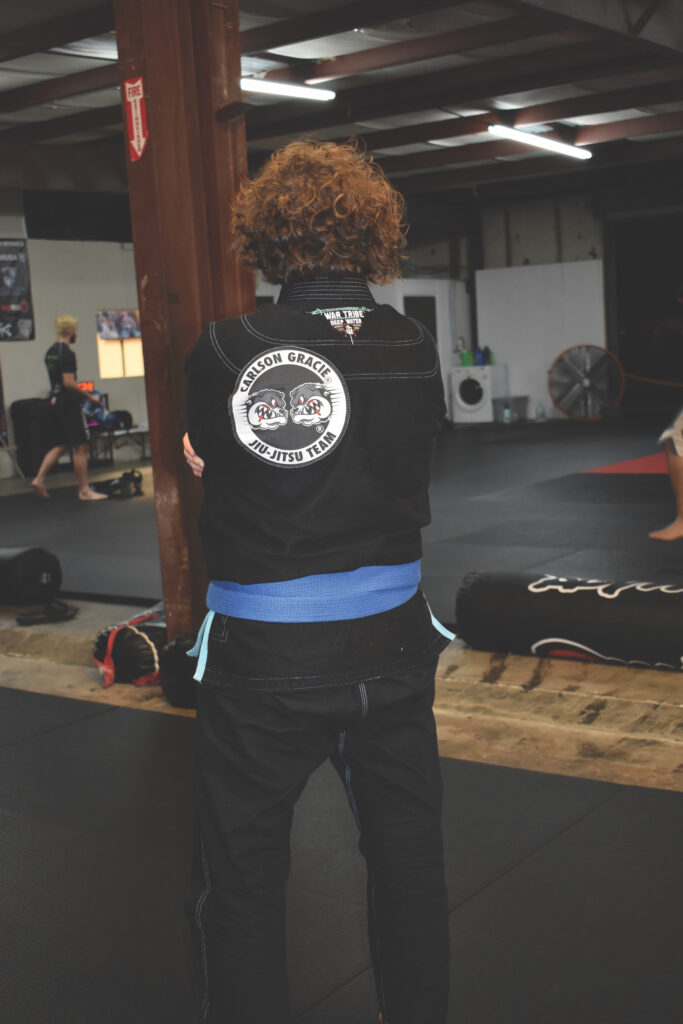
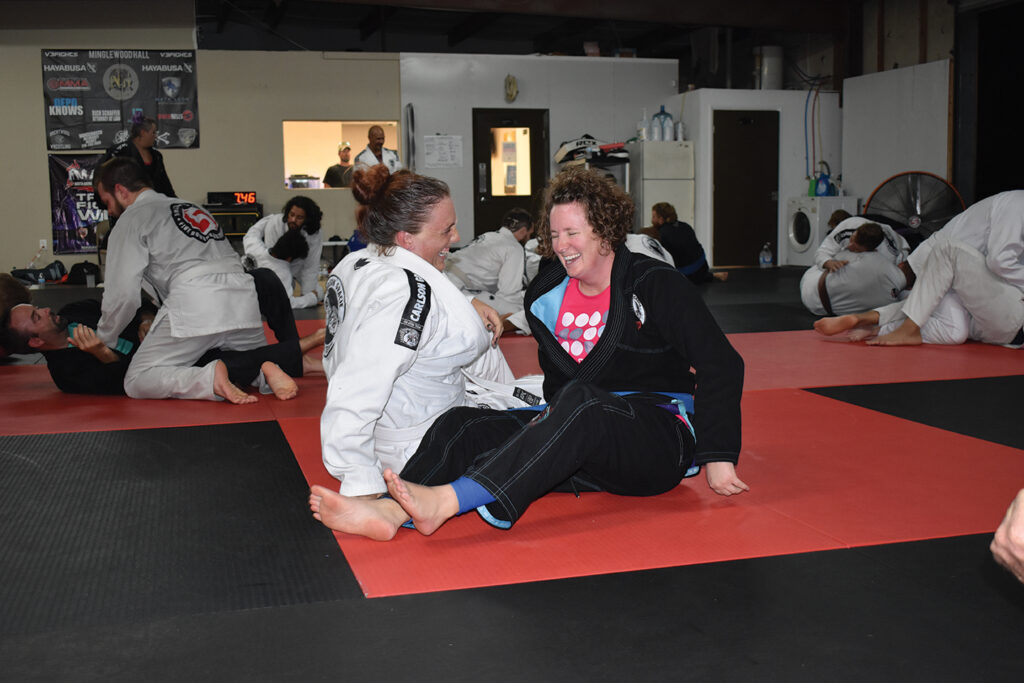
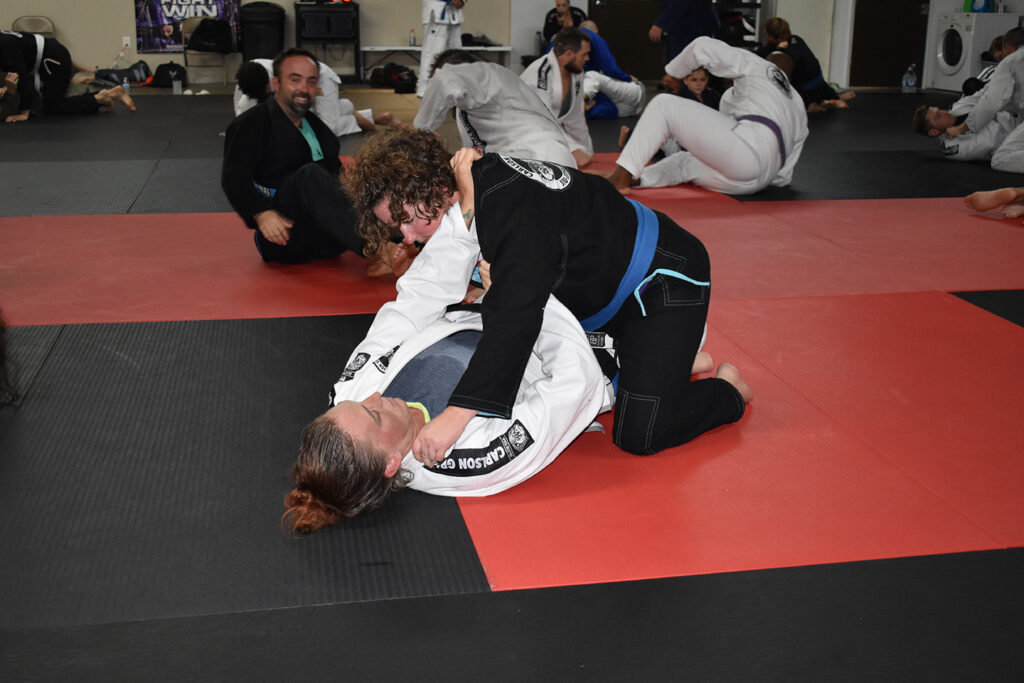
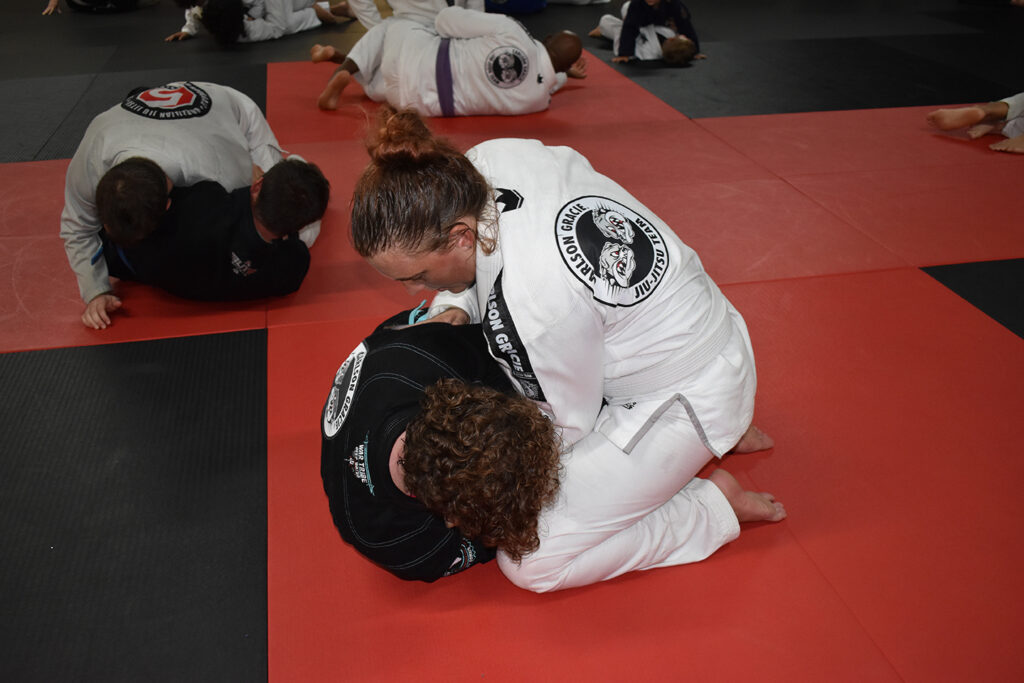
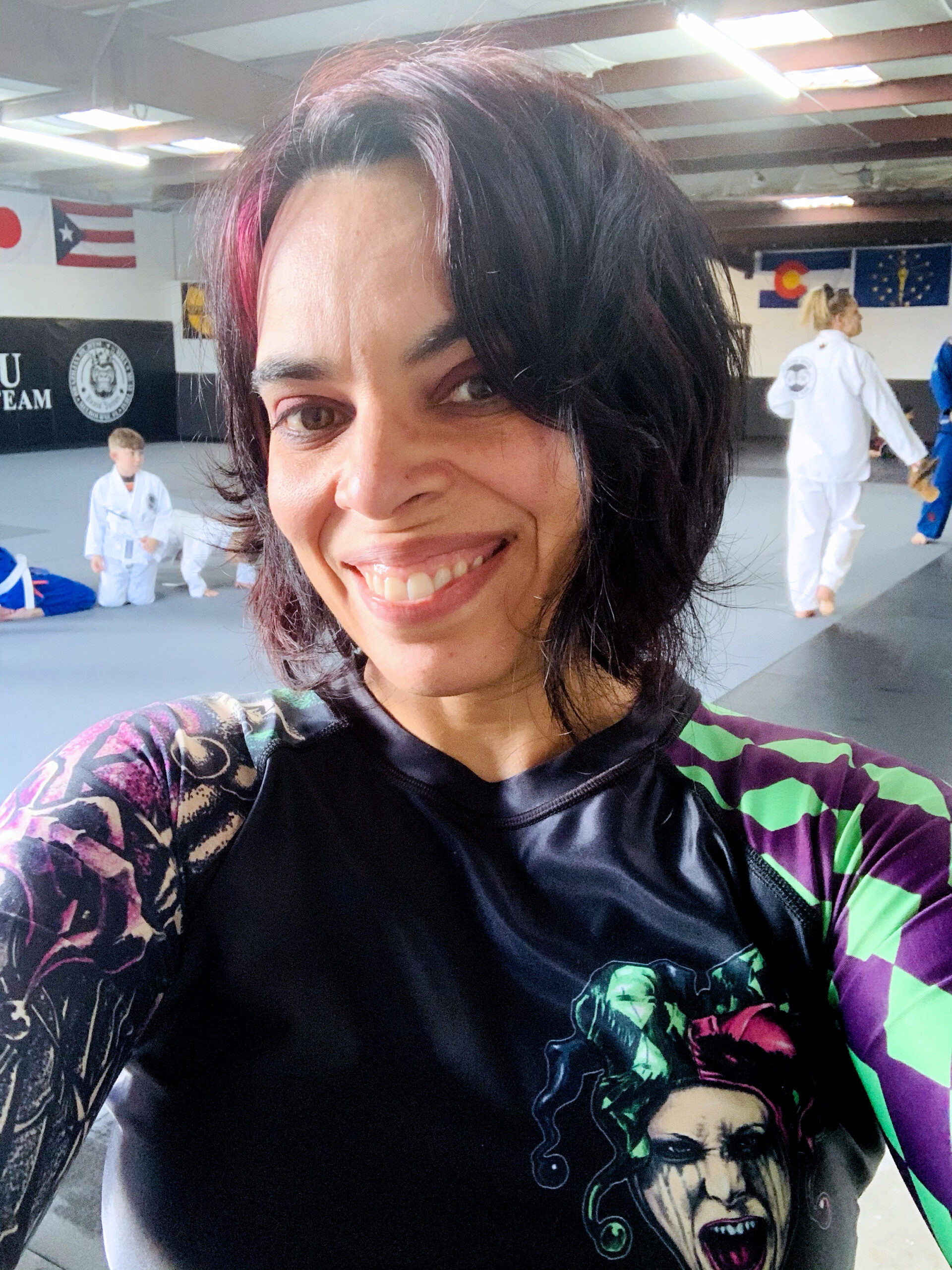
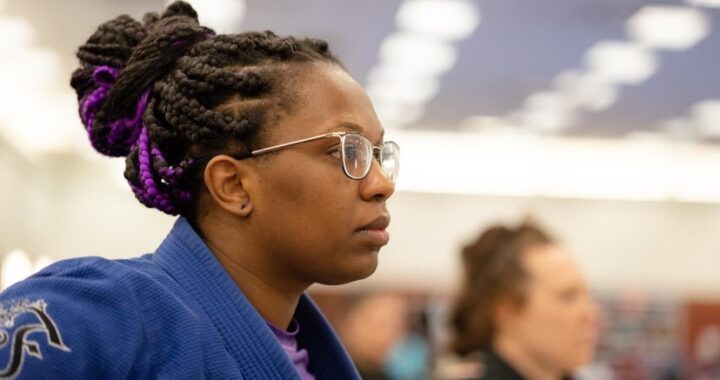 Torrie O’neil, Big Girl, Big Heart
Torrie O’neil, Big Girl, Big Heart 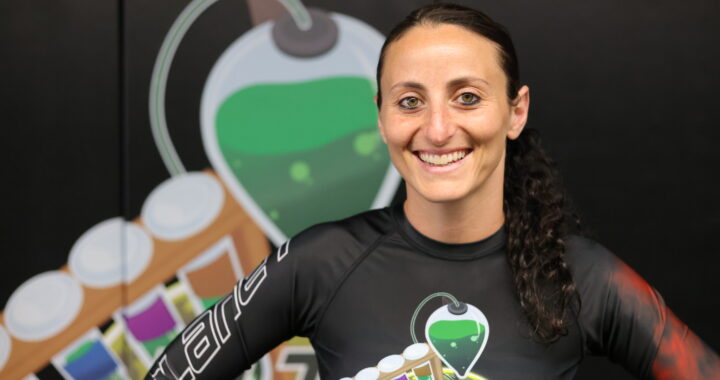 Lila Smadja-Cruz, Women’s NoGi Trailblazer
Lila Smadja-Cruz, Women’s NoGi Trailblazer 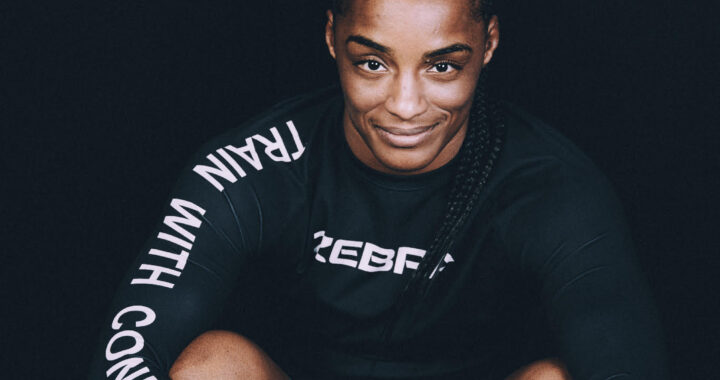 Akeela, The Warrior
Akeela, The Warrior 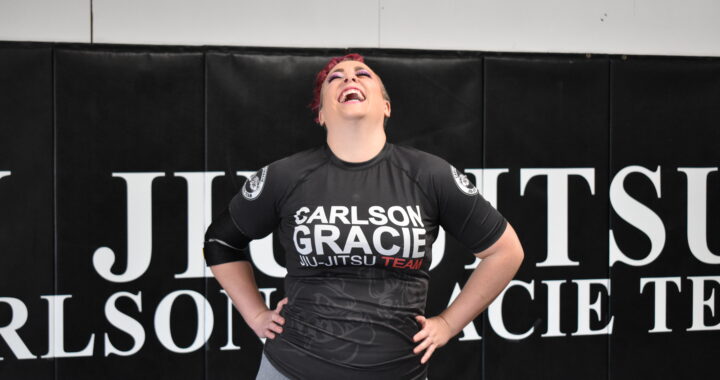 Our Beauty Queen
Our Beauty Queen 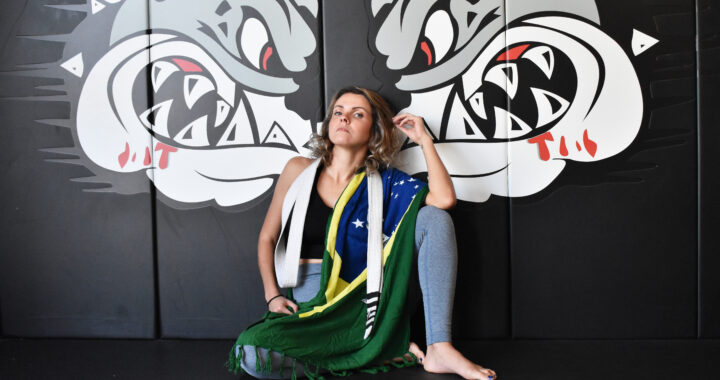 Made in Brazil
Made in Brazil 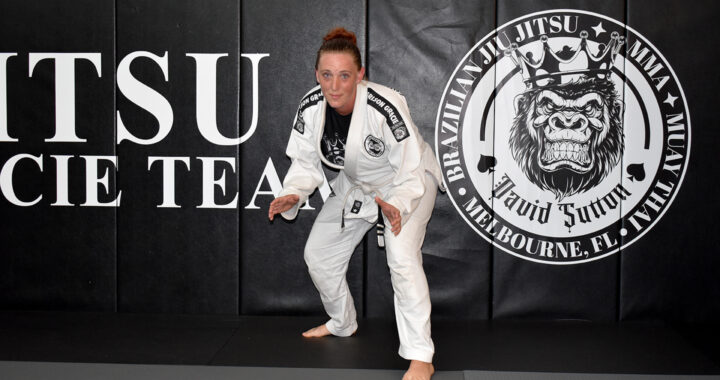 The Shield-Maiden
The Shield-Maiden 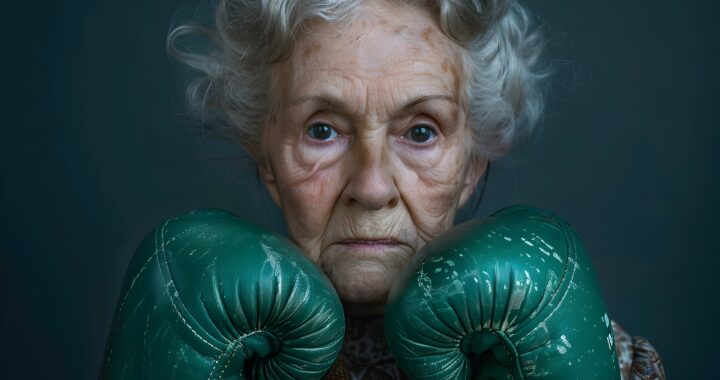 Father Time is Undefeated
Father Time is Undefeated 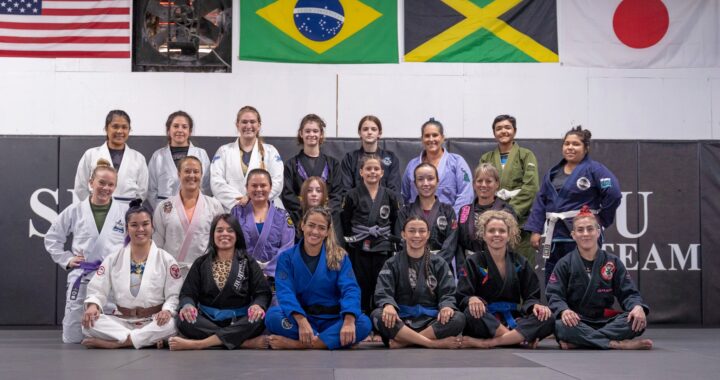 The Jiujiteira Sisterhood
The Jiujiteira Sisterhood 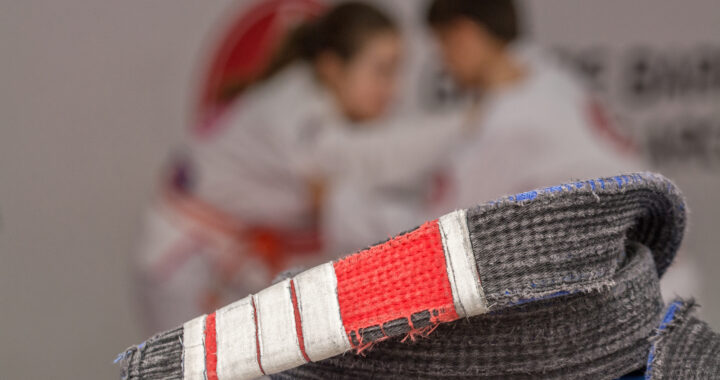 Advice in the Ranks- From White to Black
Advice in the Ranks- From White to Black  ADGS Rome: Jiujiteiras Shine in the Land of the Colosseum
ADGS Rome: Jiujiteiras Shine in the Land of the Colosseum